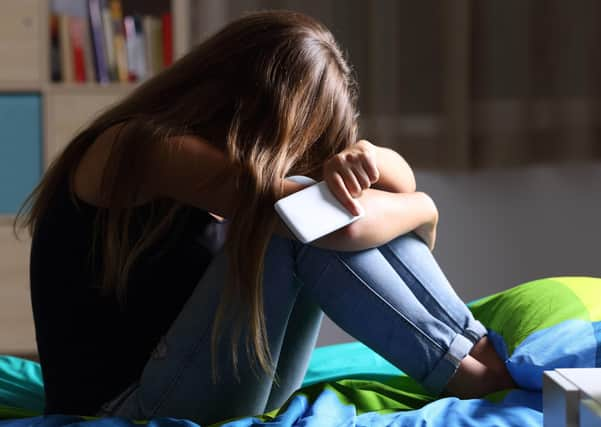Check-ins providing vital support to young people – Rebecca Wilkinson-Quinn


Like many organisations, over the past six weeks or so at Place2Be we have had to rapidly transform the way we work. We have moved from delivering face-to-face mental health services in 45 primary and secondary schools across Scotland, to providing vital support for young people and families remotely, either by phone, online, by text or through an app, in conjunction with partner organisations.
Since schools closed, Place2Be’s teams across Scotland, England and Wales have been conducting on average over 1,300 phone sessions a week with young people, parents and carers, and teachers. Many tell us they have really felt the benefit of having someone to talk to. We have children who worry that they will not be remembered or that they will need to “start again” when they return to school. These “check-ins” have helped children feel more positive about returning. They also provide an important opportunity to signpost to other services when families are in need of extra support.
Advertisement
Hide AdAdvertisement
Hide AdAccording to a survey of our frontline mental health professionals in Scotland, some of the common themes that have come up during our phone sessions with parents and carers have included family relationship difficulties (68 per cent), loneliness and isolation (65 per cent) and behaviour management (45 per cenbt).
Perhaps even more worryingly, two in five of our mental health professionals (39 per cent) have had at least one conversation involving violence in the home between parents and carers, and almost a quarter (23 per cent) have had at least one conversation that discussed either self-harm or suicide ideation by a young person.
To quote a poem by an unknown author, although we are in the same storm we are on different boats. For some, this time of trauma exacerbates existing challenges, such as anxiety, depression, self-harm, suicide ideation, violence, abuse and addiction. These are of course complex scenarios that require a multi-agency approach. Violence within the home also involves children and young people behaving violently towards parents and carers. For some of the families we work with, it is a real challenge for the children who are normally so well supported by numerous key adults and peers to no longer have this contact. Unfortunately, it appears that often the children and young people who would benefit the most from attending school are the least likely to attend.
There is no doubt that this is an exceptionally challenging time for many, and perhaps a time when we all need kindness and compassion more than ever. Schools are at the heart of this for children and families – juggling home learning with extras like reading stories on online platforms, sharing kind and motivational messages, offering home workouts, delivering food parcels, supporting and safeguarding families and more.
Amongst this we are also hearing of families who are using this opportunity to positively connect with their children and communities. Some families have quickly adapted and are respectful of each other’s needs and spaces, children who find it difficult to regulate their emotions taking up yoga, getting time together that wouldn’t usually be available to bond, adults taking up scooting, seeing superheroes running on our streets, the community delivering food parcels to our most vulnerable and the list goes on. We are also hearing of parents’ and children’s anxieties decreasing where separation anxiety and school refusal, for whatever reason, has been an issue and those families are now getting time together.
Kindness and compassion begin with ourselves. I make this point to myself as much as anyone, as I juggle work and children, writing this now whilst surrounded by Play-Doh! Having good and bad days is normal, we are all grieving for what was and what is to come. While painting the fence or working out with our chosen celebrity has its place, kindness to ourselves also means being real and remembering not being productive all the time is ok too. Whether it’s finding time for an uninterrupted bath, getting the kids to bed earlier or seeking professional help, please do be kind to yourselves. This storm is tough and uncertain and we need to nurture ourselves in order to provide support for others.
Find out more about Place2Be’s response to the Covid19 pandemic at place2be.org.uk/coronavirus
This year’s Mental Health Awareness Week (18-24 May) is focussing on kindness. Find out more at mentalhealth.org.uk/campaigns/mental-health-awareness-week
Rebecca Wilkinson-Quinn, Place2Be Service Manager, Scotland East
Comments
Want to join the conversation? Please or to comment on this article.